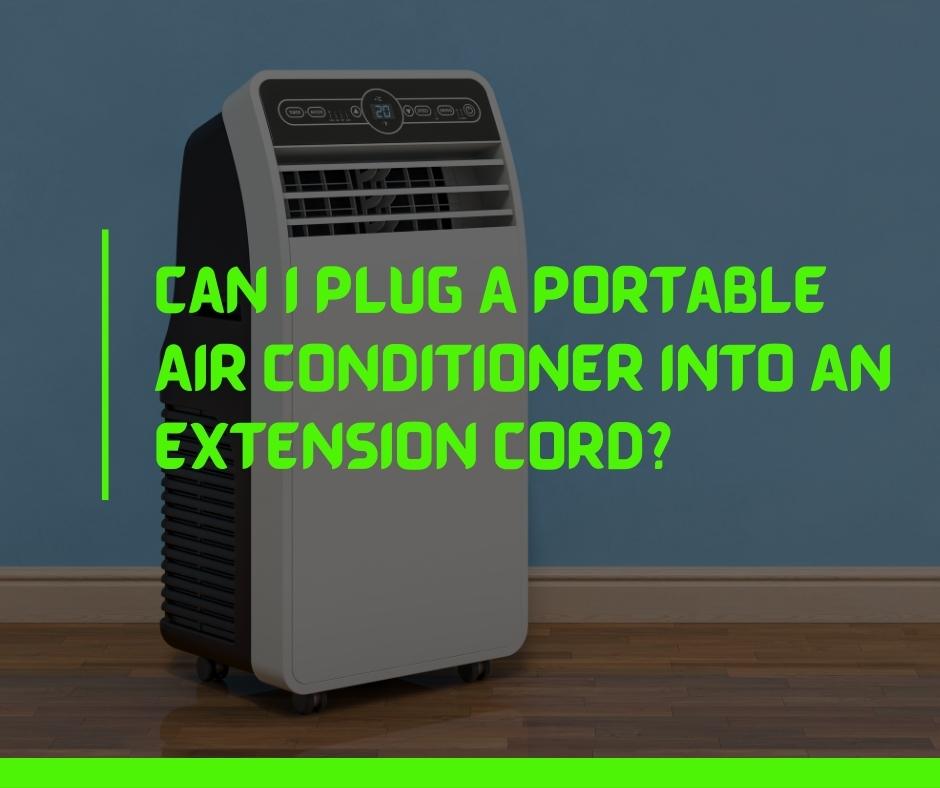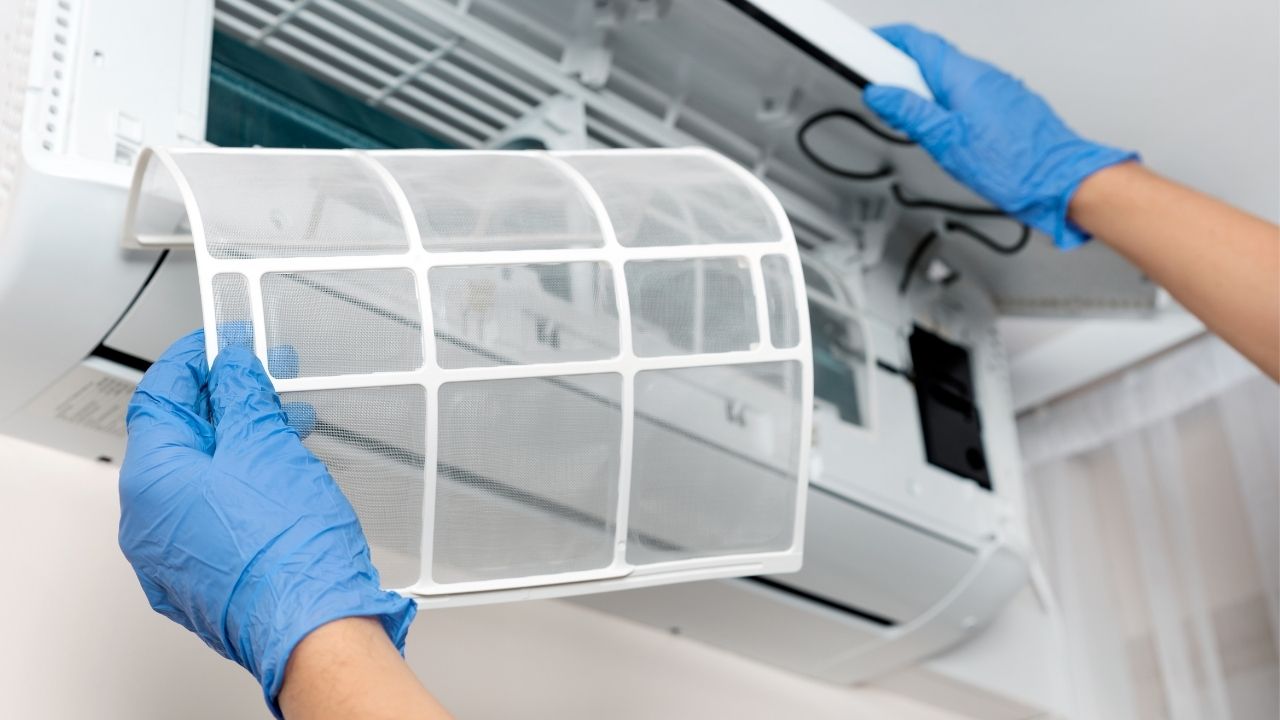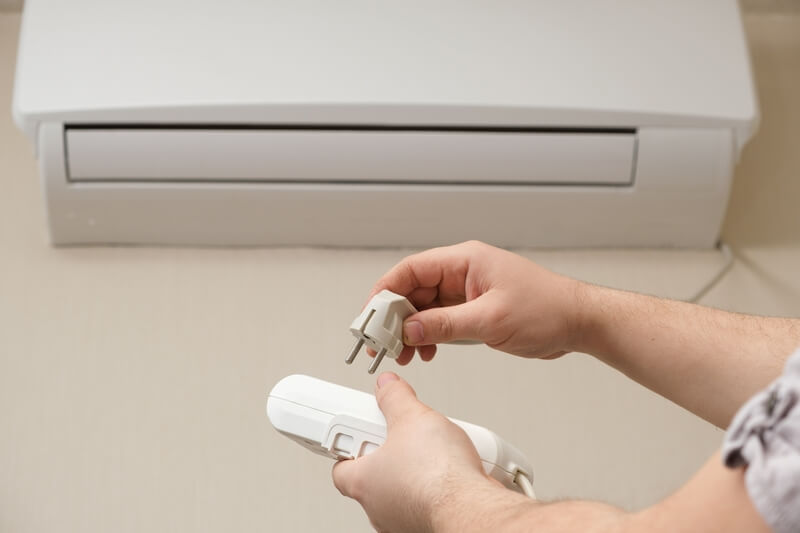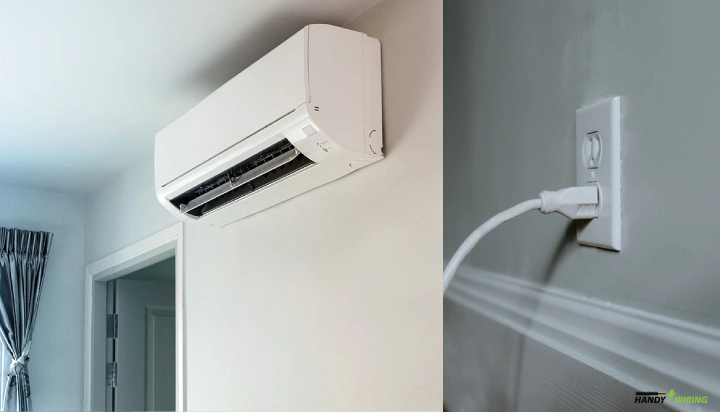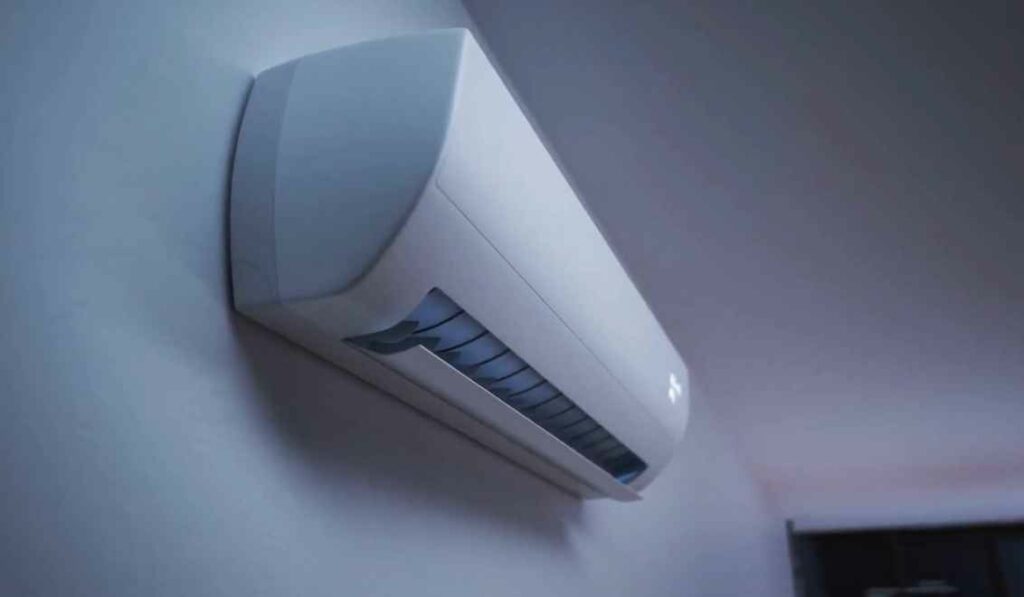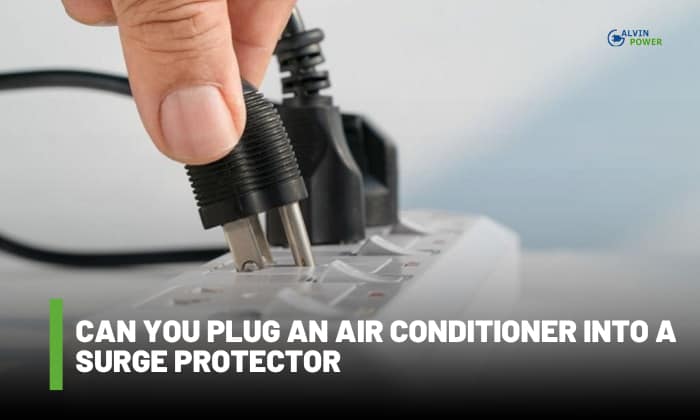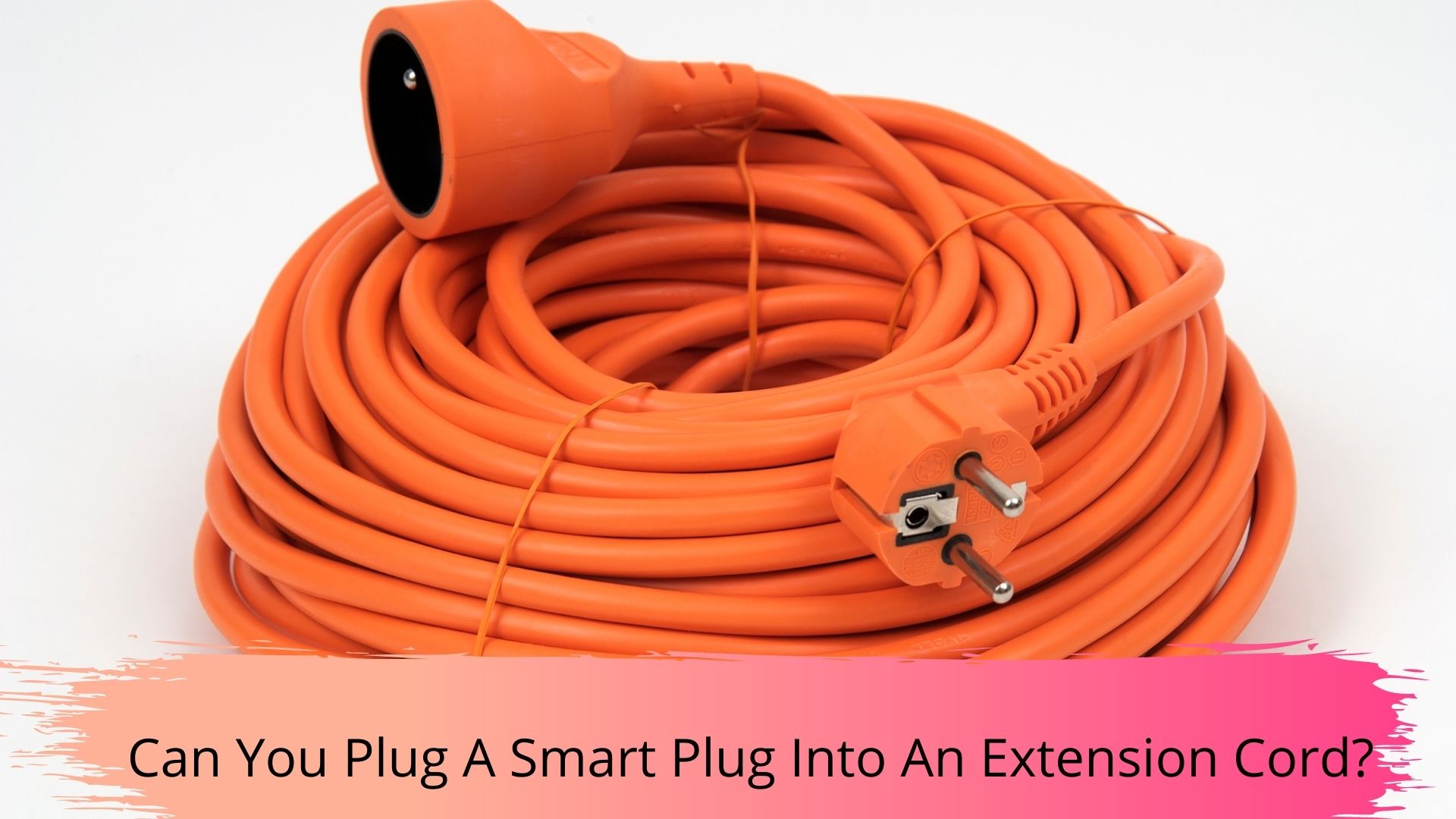Can I Plug A Window Ac Into An Extension Cord
Immediate danger exists: plugging a window air conditioner into an extension cord poses a significant fire and electrical hazard. Disconnect immediately and read this crucial safety information.
This article addresses the critical question of whether you can safely use an extension cord with a window AC unit. The answer, definitively, is no, except under very specific and rare circumstances, which will be detailed below.
The Dangers of Extension Cords with Window AC Units
The primary danger lies in overload. Window air conditioners require a substantial amount of power to operate, frequently exceeding the capacity of standard extension cords.
This overload leads to overheating. Overheated cords can melt insulation, create sparks, and ultimately ignite flammable materials nearby.
According to the Electrical Safety Foundation International (ESFI), extension cord misuse is a leading cause of residential fires.
Amperage Mismatch
Window AC units typically require 15 to 20 amps, a higher draw than many household extension cords can safely handle. Using an undersized cord creates a dangerous bottleneck.
Check the amperage rating of your air conditioner on the unit's nameplate. Then, verify the amperage rating of any extension cord you might consider using. This information is printed directly on the cord.
Never use an extension cord with a lower amperage rating than the appliance it's powering.
Voltage Drop
Even if the amperage seems adequate, the length of the extension cord can cause a voltage drop. This means the AC unit receives less power than it needs.
A voltage drop forces the AC unit to work harder. This leads to increased heat and potential damage to the appliance's motor, as stated by Consumer Reports.
Longer extension cords exacerbate this issue. Avoid using any extension cord longer than absolutely necessary, and only if it meets the specific requirements outlined below.
When is it *Potentially* Safe? (Rare Circumstances)
In extremely rare cases, using a heavy-duty, appliance-grade extension cord may be acceptable. However, this requires meticulous attention to detail.
The extension cord must be explicitly rated to handle the AC unit's exact amperage requirements. It should also be as short as possible.
Crucially, the extension cord must be plugged directly into a dedicated circuit. A dedicated circuit is one that only powers the AC unit and nothing else.
How to Identify a Dedicated Circuit
A dedicated circuit has its own breaker in your electrical panel. When the AC unit is running, nothing else should be plugged into that circuit.
Test this by turning off the breaker. If only the AC unit loses power, it's likely a dedicated circuit. Consult with a qualified electrician to confirm.
Even with a dedicated circuit, continuous monitoring of the extension cord and the AC unit is necessary. Check for overheating, unusual noises, or burning smells.
The Recommended Solution: Direct Outlet Connection
The safest and most reliable solution is always to plug the window AC unit directly into a wall outlet. This eliminates the risks associated with extension cords.
If the AC unit's cord is too short, consider having a qualified electrician install a new outlet closer to the window. This is the recommended practice by licensed electricians.
This ensures the AC unit receives the correct voltage and amperage without the potential for overheating or voltage drop.
Other Alternatives
Consider repositioning furniture or appliances to allow direct access to an existing outlet. This may require some rearranging but is far safer.
Another option is to explore alternative cooling solutions. Consider using fans or portable air conditioners that draw less power and can safely use heavy-duty extension cords if necessary.
Remember, safety should always be your top priority.
Who is at Risk?
Anyone using a window AC unit with an inappropriate extension cord is at risk. This includes homeowners, renters, and anyone responsible for maintaining electrical safety in a building.
Elderly individuals and families with young children may be particularly vulnerable. They may not be aware of the potential dangers or able to respond quickly in an emergency.
Landlords have a legal and ethical responsibility to ensure that electrical systems are safe for their tenants. Neglecting this duty can lead to serious consequences.
What To Do Now
Immediately unplug any window AC unit currently connected to an extension cord unless it meets the *extremely specific* criteria described above.
Inspect the power cord and the outlet for signs of damage. Contact a qualified electrician if you find any issues.
If you are unsure about the safety of your electrical setup, err on the side of caution and seek professional advice. Your safety is paramount.



